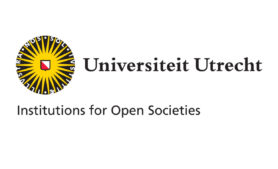Parallel sessions
This page always contains the latest version of the program and is kept up-to-date during the workshop.
Friday June 28
11.00 – 12:30 Parallel sessions 1
Parallel session “Reputation” (UCK 103)
1. Peer reviews and community rating: The effect of seller reputation on a peer-to-peer marketplace — Marielle Non
2. Creating a unified reputation platform for the sharing economy — Ayelet Gordon
3. Legal landscapes of sharing economy: the national legal responses to Airbnb and Uber: the case of Greece — Natalia Avlona
4. Digital discrimination – The role of reputation systems — Judith Kas
Parallel session “Urban Sharing 1” (UCK 114)
1. How do food delivery platforms affect urban logistics? An exploratory survey centred on Barcelona — Eduard Alvarez
2. Sharing economy, collaborative Initiatives and circular consumption: The case of Gothenburg — Rannveig Edda Hjaltadottir
3. Location, location, location, or is there more? Uncovering the spatiality of Airbnb in Utrecht — Egbert van der Zee
Spatial impact of a peer-to-peer platform’s online transactions in Hungarian cities — Dóra Bálint Canceled
Parallel session “Business Models 1″ (UCK 018)
1. Service delivery in the sharing economy: Assumptions and technology affordances for service interactions on ridesharing platforms — Anita Bhappu
2. The internationalization of sharecoms — Heidi Coral Thornton
3. Airbeds, apartments and hotels: The professionalization of Airbnb across Europe — Kristóf Gyódi
4. From chains to platforms? Exploring the challenges of digital platforms for the global value chain-approach — Erwin Van Tuijl
Parallel session “Legal issues” (UCK 017)
1. Actual problems of contract law in sharing economy — Irina Aiusheeva
2. The role of trade marks in the sharing economy — Marta Cernadas Lázare
3. The legal implications of the sharing economy in an island state: The case of Malta — Jasmine Farrugia
4. Measuring consumerism in the sharing economy: A design for an empowering, informative tool — Rosalie Koolhoven
13.30 – 15:00 Parallel sessions 2
Parallel session “Cooperation” (UCK 103)
1. Practices of sharing – civil competences and potentials within collaborative consumptions: On the example of a collaborative soup kitchen — Gerrit Retterath
2. Governance mechanisms in non-monetary platforms of collaborative consumption — Janaina Schiavini
3. Social regulation as a measure to prevent conflicts in community gardens — Thomas Sabitzer
4. Social dilemma’s in the sharing economy — Rense Corten
Parallel session “Mobility” (UCK 114)
1. Stocktaking and assessment of urban circular & collaborative economy initiatives — Madaline Nunu
2. Finding the right policy measures to reach 100,000 shared cars – Insights from an expert workshop — Karla Münzel
Implications of car sharing practice on households’ travel patterns – Do people drive more after staring car sharing, and what about other possible rebound effects? — Eivind Farstad Canceled
How an ambiguous concept performs its network: The case of Mobility-as-a-Service — Gianluca Chimenti Canceled
Parallel session “Business Models 2” (UCK 018)
1. Incumbents and business model innovation for the sharing economy: Implications for sustainability — Francesca Ciulli
2. There Are Platforms As Alternatives (TAPAS): Towards new business models and forms of labor — Guillaume Compain
3. The interrelated tensions of the collaborative consumption paradox — Hugo Guyader
4. A different path to ecosystem strategy: The case of platform cooperatives — Jovana Karanovic
Parallel session “Institutions 1” (UCK 017)
1. Digital platforms at the center of a “theoretical representations crisis”: case study of the mobility sector in France — Mathilde Abel
2. Collaborative economy in social media – Collective action in Sweden — Christina Öberg
3. Your Uber is arriving now: An analysis of platform location decisions through an institutional lens — Matthijs Punt
4. Riding the hype train: The corporate co-optation process in the German carsharing market — Taneli Vaskelainen
15.30 – 17:00 Parallel sessions 3
Parallel session “Trust” (UCK 103)
1. Enabling sharing and resource efficiency among neighbours by comparing trust and social cohesion in Sweden and the Netherlands — Charlie Gullström
2. The difference in generalized and direct reciprocity when comparing traditional and sharing economy hospitality industry — Eva Hofmann
3. In sharing we trust: The shifting meaning of trust across the access spectrum — Viswanathan Venkateswaran
4. Who trusts whom in the sharing economy? — Christina Öberg
Parallel session “Environmental Impact” (UCK 114)
1. Is car-sharing “green”? Life-cycle greenhouse gas emissions behind shared mobility — Levon Amatuni
2. Environmental aspects of expanding carsharing activities: A system thinking approach — Zahra Shams Esfandabadi
3. On public opinion: Perceived impact of p2p accommodation platforms in Europe — Cristina Miguel
4. Value co-creation practices facilitated by sharing platforms — Steven Curtis
Parallel session “HRM” (UCK 018)
1. Platform workers: The denial of an employment relationship? — Eloisa Federici
2. Work in the gig economy: How platform design and governance shape work success and satisfaction — Adeline Frenzel
3. A structured mapping of the challenges telated to the working conditions of platform work: Identifying drivers and potential responses — Karolien Lenaerts
4. Exploring ‘human resource management without employment’ in the gig economy: How online labor platforms manage institutional complexity — Jeroen Meijerink
Parallel session “Coops” (UCK 017)
1. Conceptualizing the institutional complexity of community-based enterprises — Taneli Vaskelainen
2. Towards a framework to evaluate the social impacts of the sharing economy as a practice — Jagdeep Singh
3. Market transformation as social movement: The case of platform cooperativism — Jonas Pentzien
4. Platform workers in control: Reinventing worker cooperatives in the gig economy — Damion Bunders
Differences in environmental embeddedness of organizational forms: The case of sharing economy organizations in Germany — Dominika Wruk Canceled
Saturday June 29
11.00 – 12:30 Parallel sessions 4
Parallel session “Participation” (UCK 115)
1. Individualism vs. collectivism in a Sharing Economy context: A study on what determines Portuguese consumers’ participation — João Cotrim
2. Motives for food sharing: A quantitative study in Germany, Austria, and Switzerland — Karin Dobernig
3. Who shares and why? Assessing the potential for peer-to-peer mobility innovations to reduce CO2 emissions — Laurie Kerr
4. The interplay between self-perception and self-signalling: Exploring motivations and barriers to using pre-owned and shared goods — Carmela Bosangit
Parallel session “Urban Sharing 2” (UCK 114)
1. Sharing cities coalitions: Steps forward for the collaborative collective actions in the transformation of the contemporary societies — Monica Bernardi
2. Sharing “Intrigue and Love”: Public bookcases in Vienna — Sarah Marth
3. A (digital) tale of two cities. Narratives and counter-narratives of collaborative accommodation platforms in Barcelona and Madrid — Julie Wilson
4. The role of city governments in the sharing economy — Yuliya Voytenko Palgan
Parallel session “Individual Behavior 1” (UCK 018)
1. Exploring psychological ownership in access-based fashion consumption — Bader Alkaffary
2. Sociodemographic prole of collaborative platform users in Europe: A regression analysis — Daniel Liviano Solís
3. Teaching design for sustainability through design for sharing — Rosana Vasques
4. Are AirBnB and Uber perceived as part of the sharing economy? An analysis of a representative survey of German consumers — Barbara Hartl
Parallel session “Institutions 2” (UCK 017)
1. Trade Union response in the on-line gig economy — Nikolaos Koutsimpogiorgos
2. Sharing for a better future? On the sharing economy and imagined future states of society — Sebastian Jürss
3. Shades of hybridity: Uncovering the variation, rigidities, and flexibilities of sharing economy hybrid governance — Yaomin Zhang
4. An institutional logics perspective on the gig economy — Koen Frenken
13.30 – 15:00 Parallel sessions 5
Parallel session “Social Impact” (UCK 115)
1. Social impact of the sharing economy – A literature review — Alexandra Kessler
2. Economic and social impact through complementary currency systems — Susana Martín Belmonte
3. Unravelling sharing economy: Experiences from Hong Kong — Michael Lai
Parallel session “Policy” (UCK 114)
1. Conceptualizing the gig economy and its regulatory problems — Jaap van Slageren
2. Regulating the platform economy — Monica Postiglione
3. Are platform cooperatives viable? — Martijn Arets
A framework to assess the pro-democratization of Platform Economy: The case of Barcelona — Mayo Fuster Canceled
Parallel session “Individual Behavior 2” (UCK 018)
1. Sharing or trading in Airbnb? The influence on price of commercial hosts in southern Europe cities — Josep Lladós-Masllorens
2. Service failures in the sharing economy: Consumer tolerance towards collaborative service quality — Jérôme Mallargé
3. Market situations in digital two-sided industries: An agent-based simulation approach — Clara Wolff
4. Learning through conflict: The case of ridesharing in Indonesia as a battleground for governance experimentation — Suci Lestari Yuana



